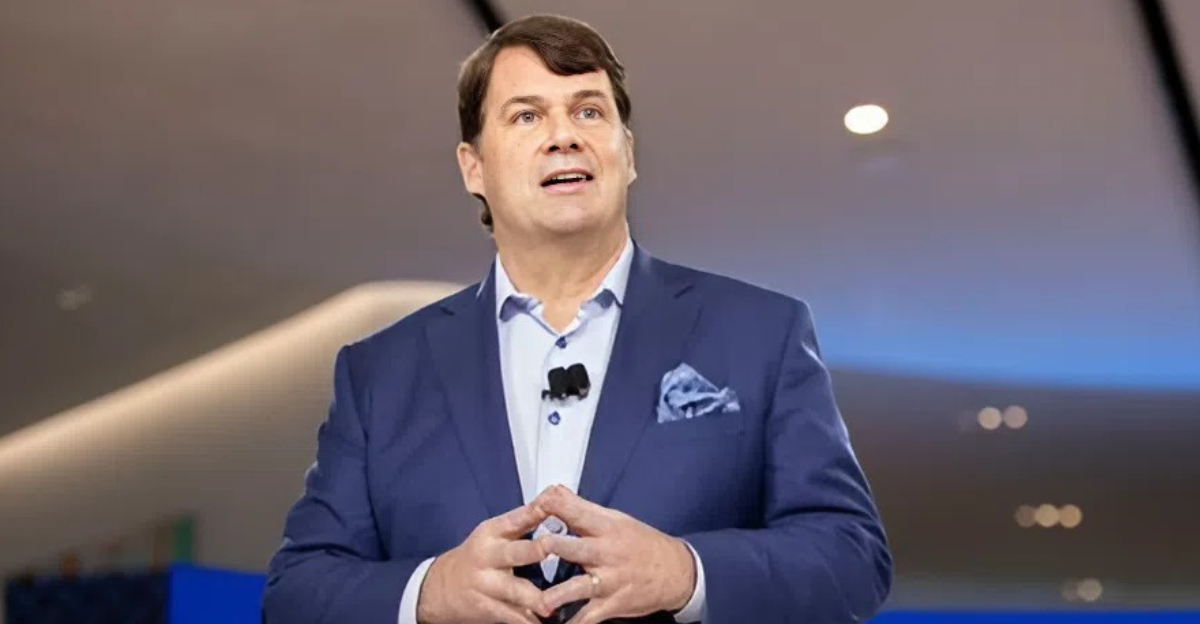
After years of being talked about, the artificial intelligence movement is in full swing in the United States and globally. And now that technology is advancing at such a rate, there is the question of how AI will affect both the economy and the job market moving forward.
In a recent LinkedIn post and in comments at conferences, Ford CEO Jim Farley is predicting that artificial intelligence will eliminate many jobs within the white-collar sector. According to Farley, AI will be devastating to white-collar jobs but will create massive opportunities within the essential worker sector.
Most Fears About AI Tend to Focus on Blue Collar Workers
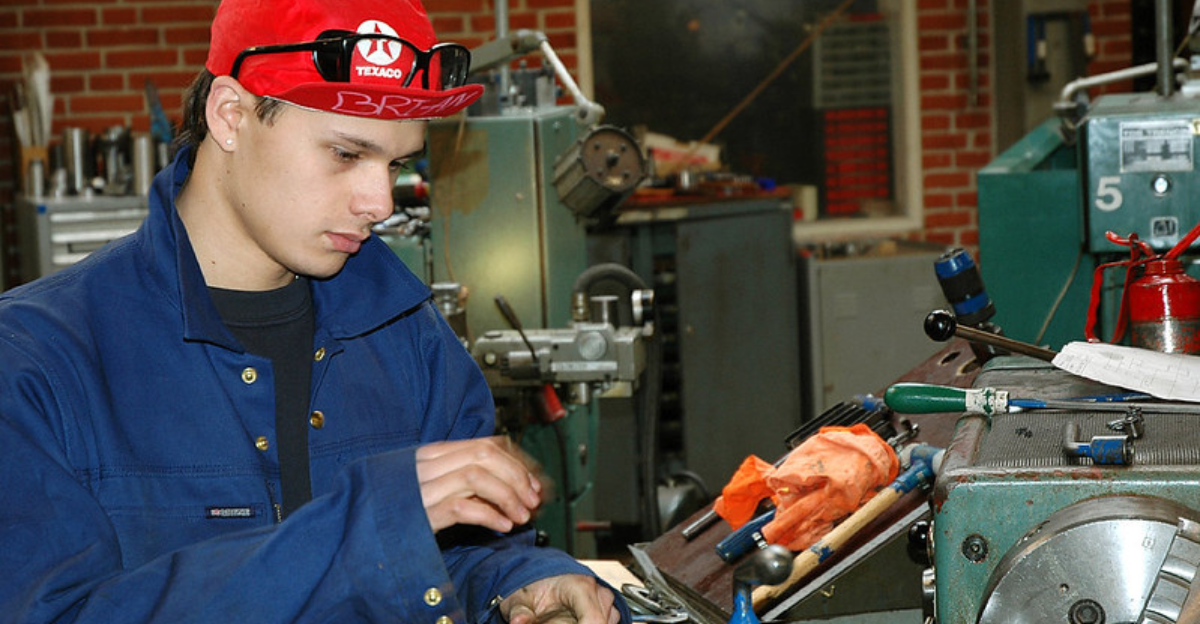
For the most part, fears about how artificial intelligence could affect the job market are focused on blue-collar workers. AI, to many people, means automation, which would clear out jobs in several markets. Farley, though, opined about how the new technology could impact workers further up the chain.
If artificial intelligence is able to truly take hold, it won’t just make things easier in the warehouse; it will also make things more efficient in the office as well. As AI makes changes within the office, companies could look to get rid of workers they feel are redundant.
Blue Collar Workers Are Just At Risk As White Collar Workers

So much of the talk about AI focuses on how the technology could immediately replace blue-collar workers. For example, fast food companies have argued that if wages go up, then they will be able to simply replace their workers with technology.
That same technology, though, could also do many jobs that are traditionally associated with white-collar workers. This includes things like legal research, customer service, and data analysis. The comments from Farley outline how certain aspects of an AI takeover may not be properly outlined.
CEO’s Know AI Could Save Them Plenty of Money
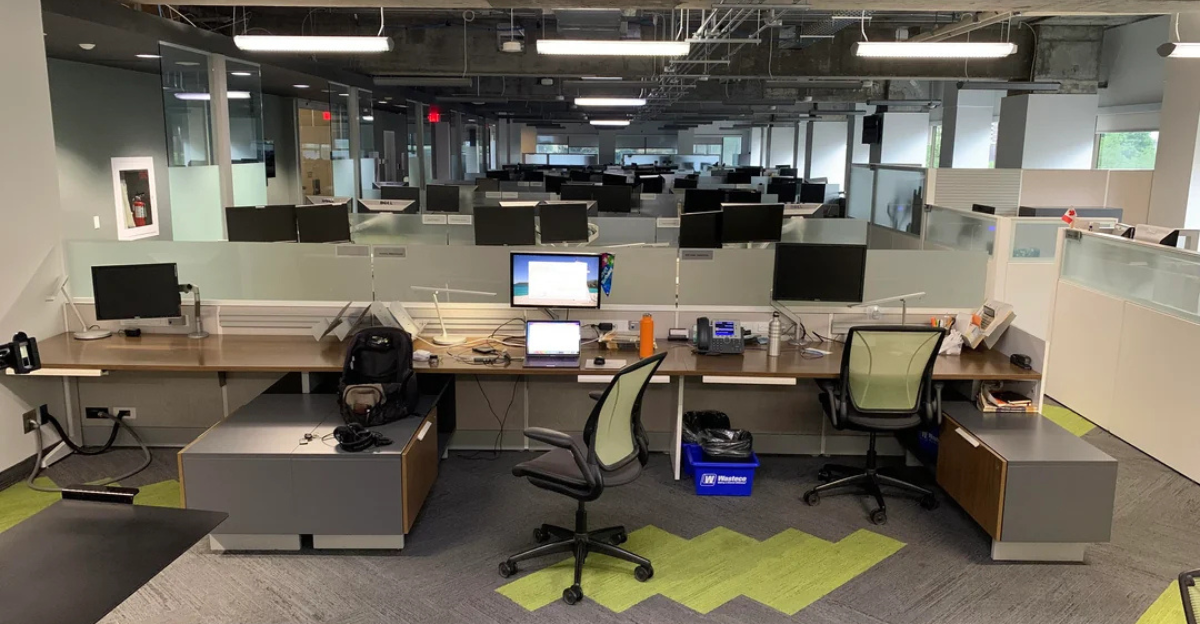
Artificial intelligence changes the way companies may think about labor. Hiring a force to perform a number of different tasks isn’t so simple. Working with people necessitates human resources, worries about sick days and maternity/paternity leave, worker conflict, and other issues.
AI can perform most of the tasks white-collar workers perform and require none of the extra perks human workers do. If the hope is that large corporations will be willing to pay more for human services, it is likely unfounded. Companies will go to great lengths to save a buck.
The Main Threat to Blue Collar Jobs Comes From Robots
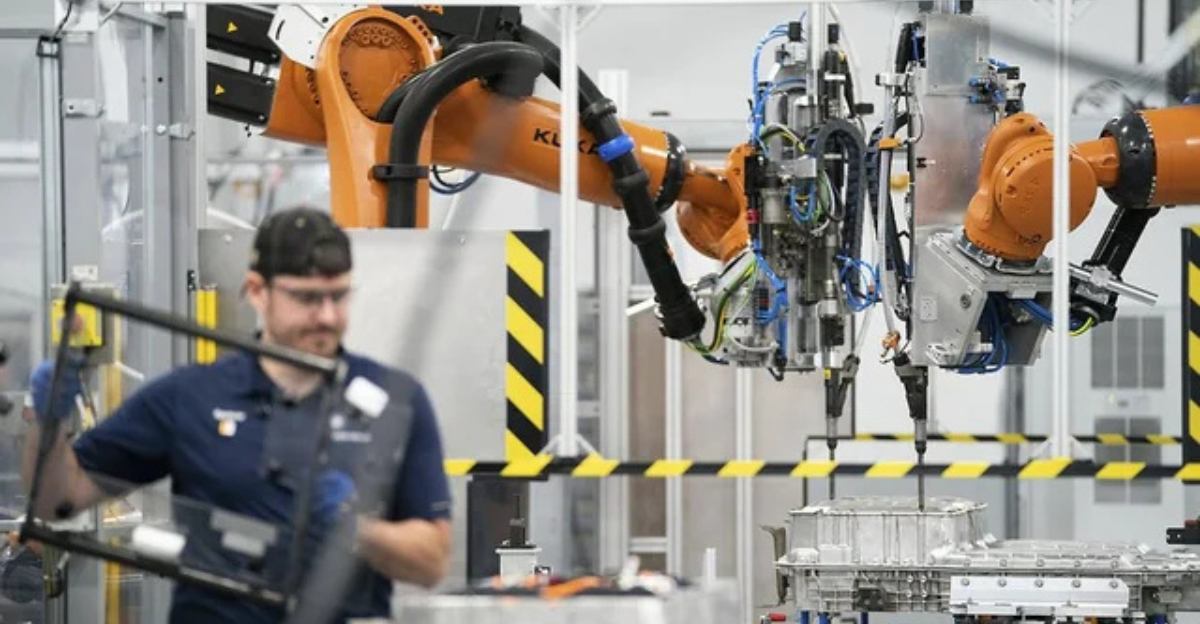
At this point, people who work in offices are more threatened than those who work in factories. That does not mean, however, that artificial intelligence advances could one day make those jobs obsolete as well.
The biggest threat to factory jobs right now is automation, which is coming in the form of robots. Cartoons going back to the 1960s show robots being all over the place in the future, and while that is not the case now, it could be in the near future.
There is a Race Among Technology Companies to Build the Best Robots
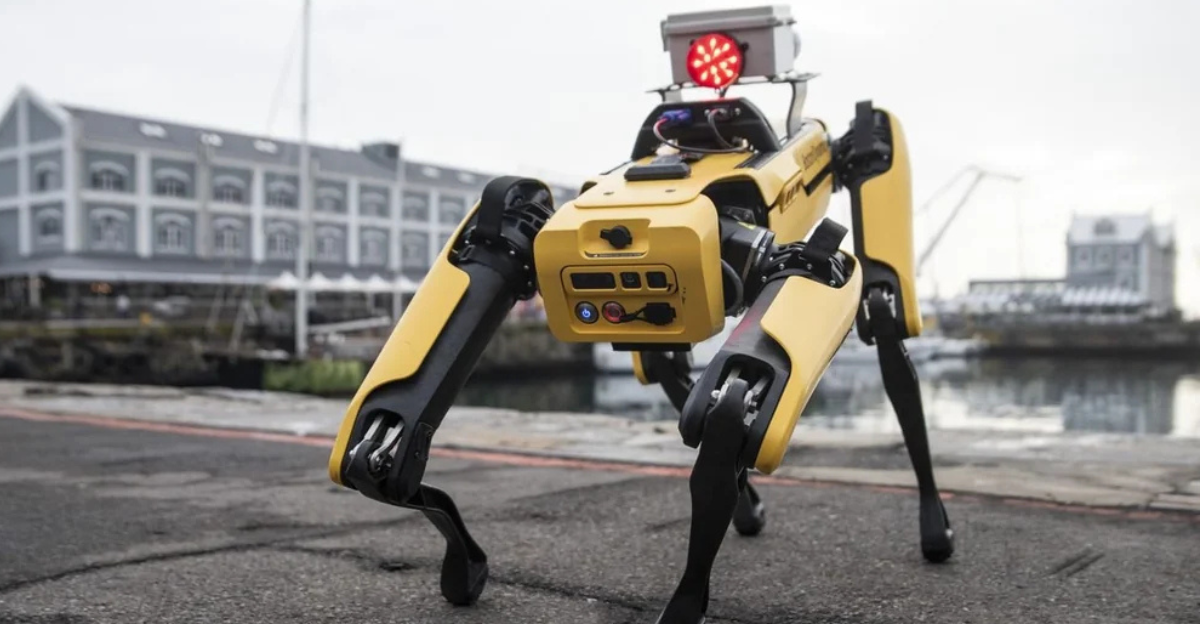
One of the most prominent robotics companies is Boston Dynamics, and the company’s products have been seen in viral videos for years. People with at least $22,000 can purchase their own ToborLife AI G1, a human-like machine that will pack your suitcase and carry on a conversation.
While Tesla is known mainly for their automobiles, they are getting involved in the robot race as well. The company has developed the Optimus machine, a robot that can walk and carry objects. The plan is to build thousands of them over the next year.
Amazon’s Leader Explained How AI Will Change Their Workforce
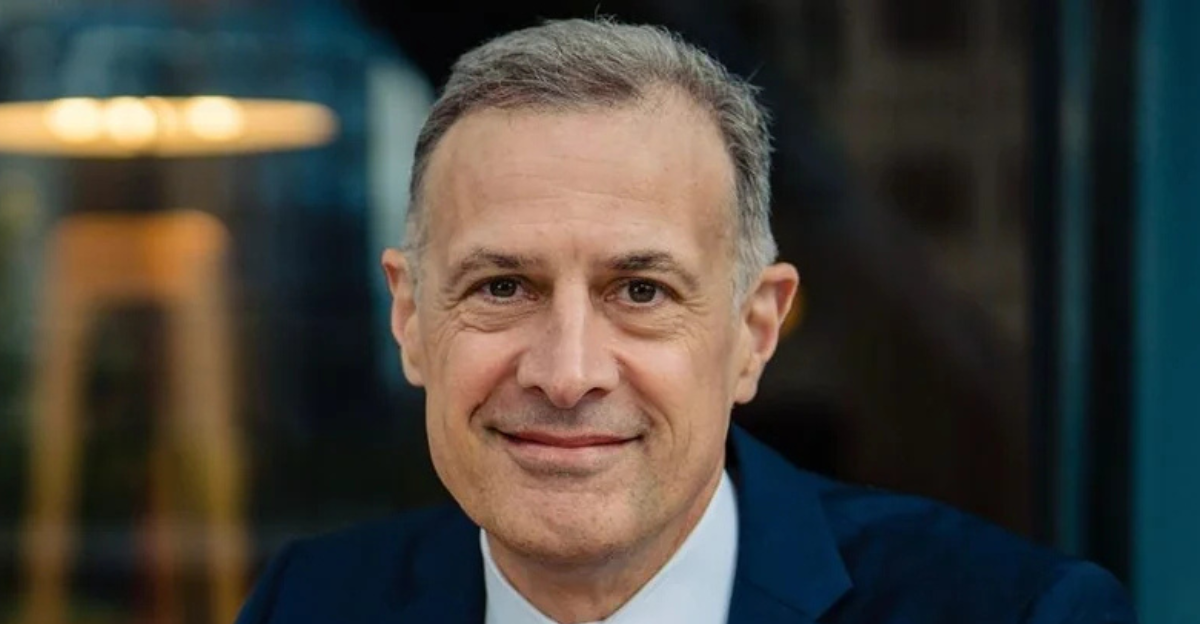
Ford’s Farley isn’t the only CEO who is willing to speak out about how AI could affect his workforce. Andy Jassy, the CEO of Amazon, said that new advances in technology will force his company to reduce its workforce in the coming years.
In an interoffice memo that he sent last month, Jassy said that he will soon not need as many workers to perform the same jobs as he currently has. While he would not put any kind of number on his prediction, he did expect to lose workers.
Farley Believes One Sector of Workers Will Benefit From AI
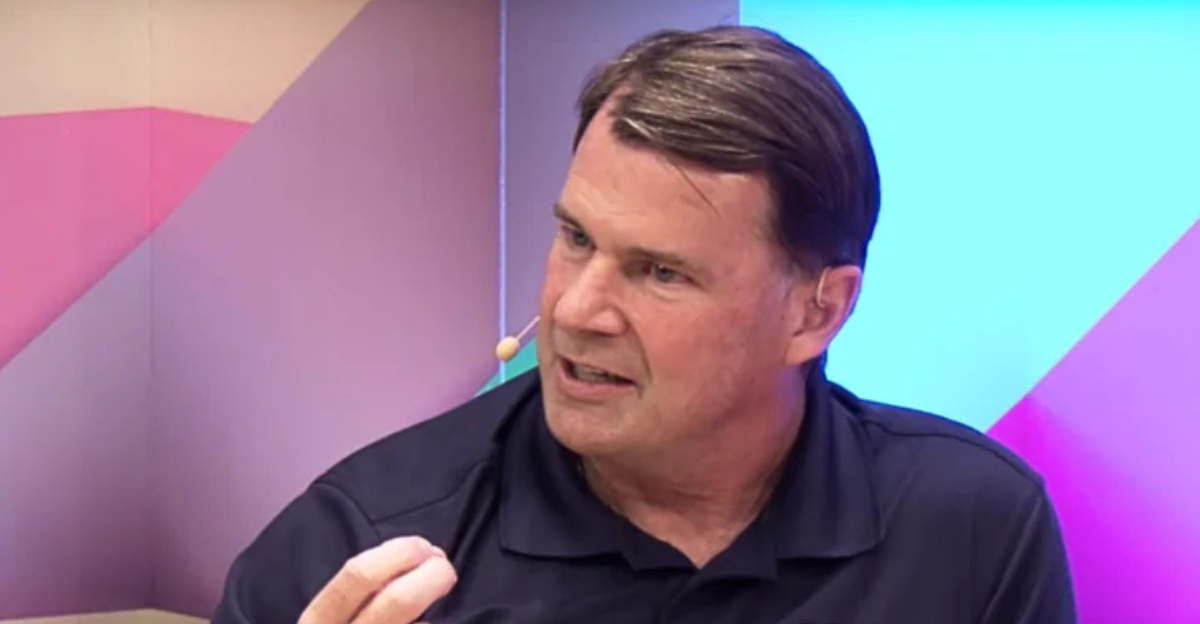
Farley’s comments were not all doom and gloom for the American workforce, as he expected skilled workers to do very well in the new reality. According to Farley, there will be a huge demand for workers in the essential economy.
The country already has a shortage of tradespeople, and the demand for them will only grow greater as AI develops. Noting that tech companies are hiring far fewer people than they did even 10 years ago, the Ford CEO said that more people should take a look at training in other trades.
The American School System Isn’t Producing Enough Tradespeople

For decades now, many schools have encouraged their students to focus on going to four-year colleges and eschewing trades. As a result, the country has not been producing enough of this kind of worker. Even worse, there are very well-paying jobs that are going unfilled.
Farley believes that things have to change within schools, though he doesn’t have the power to change things. The government, however, may want to look into encouraging students to look at different fields as the world changes over the next decade.
Conclusion

Artificial intelligence is coming fast and furious, and the biggest companies in the world are attempting to adapt to the new world. It is not just companies that are going to need to adapt; people and the government will need to be ready to do the same.
Parents should also take note of how AI is going to change the world when they talk with their children about what field they might want to get into. A trade could be the perfect choice for lots of kids, especially if traditionally white-collar job opportunities continue to dry up.
